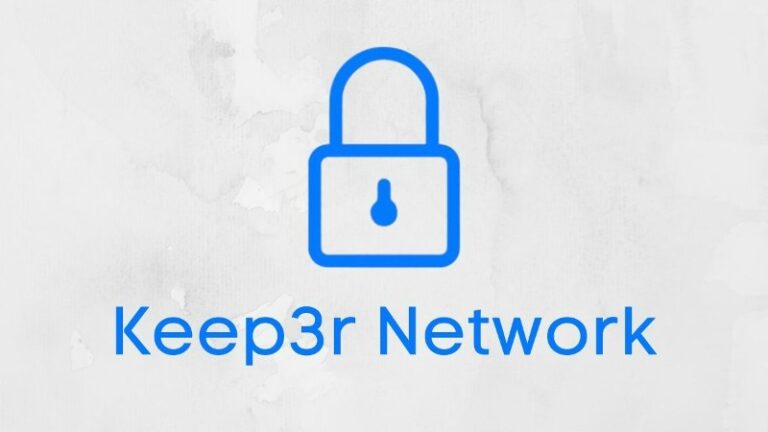Unlocking the ‘SigHash’ Variants in the World of Bitcoin

Bitcoin, the world’s most famous cryptocurrency, relies on a complex system of cryptography to secure its transactions. At the heart of this cryptographic system is SigHash, a fundamental component that plays a crucial role in the validation and verification of Bitcoin transactions. In this article, we will delve deep into the world of SigHash, exploring its significance, evolution, impact on scripting and smart contracts, privacy considerations, challenges, and the exciting future it holds for Bitcoin. Want to learn more about Crypto trading and Voltix Edge? Then Read More this page and get a whole new experience.
Understanding the Basics of SigHash
What is SigHash and its Role in Bitcoin Transactions?
At its core, SigHash is a cryptographic function that serves as the basis for transaction verification in the Bitcoin network. It ensures that transactions are both valid and secure by verifying the transaction inputs and outputs. SigHash, short for “Signature Hash,” is an integral part of Bitcoin’s security model.
How SigHash Ensures Transaction Security
SigHash achieves transaction security by creating a unique digital signature for each transaction. This signature is generated by combining various elements of the transaction data, making it impossible for malicious actors to alter the transaction details without invalidating the signature. This ensures the integrity of Bitcoin transactions.
Brief History of SigHash Development
SigHash has evolved over the years to meet the changing needs of the Bitcoin network. Its development has been closely linked to the advancement of Bitcoin itself. We’ll explore the key milestones in the development of SigHash and how it has adapted to the evolving Bitcoin ecosystem.
The Evolution of SigHash Variants
Original SigHash (SigHashAll) Explained
The original SigHash variant, known as SigHashAll, operates by signing all transaction inputs and outputs, ensuring that any changes to the transaction details invalidate the signature. We will dissect the mechanics of SigHashAll and its role in Bitcoin’s security.
Introduction to SigHash Single, AnyoneCanPay, and NoInput
SigHash has not remained static; it has diversified into variants like SigHashSingle, SigHashAnyoneCanPay, and SigHashNoInput. These variants offer flexibility and enable novel use cases in Bitcoin transactions. We will examine the distinct characteristics of each variant and their practical applications.
Advantages and Disadvantages of Different SigHash Variants
Every SigHash variant comes with its own set of advantages and disadvantages. Understanding these trade-offs is crucial for Bitcoin users and developers. We’ll provide a comprehensive overview of the pros and cons of each SigHash variant.
Real-World Use Cases for Each SigHash Variant
To illustrate the practical implications of SigHash variants, we’ll explore real-world use cases. From multi signature wallets to atomic swaps, we’ll show how different SigHash variants enable a wide range of functionalities within the Bitcoin ecosystem.
Scripting and Smart Contracts
How SigHash Variants Impact Bitcoin Scripting
Bitcoin scripting, the language used to create smart contracts, has been significantly influenced by SigHash variants. We will delve into how these variants impact scripting, allowing for more complex and versatile contract types.
Smart Contract Applications with SigHash Variants
Smart contracts have the potential to revolutionize various industries. We’ll discuss real-world examples of smart contracts enabled by SigHash variants, such as decentralized exchanges, escrow services, and more.
Examples of Complex Transactions Using SigHash Variants
Complex transactions often require intricate scripting and the use of SigHash variants. We’ll walk through examples of transactions that leverage these variants, highlighting their role in achieving specific outcomes.
Privacy and Anonymity Considerations
Analyzing the Privacy Implications of SigHash Variants
While Bitcoin is often touted as pseudonymous, it’s not entirely private. SigHash variants play a crucial role in enhancing transaction privacy. We’ll explore how these variants contribute to privacy and anonymity in the Bitcoin network.
Mixing and Coinjoin Techniques with SigHash Variants
Privacy-conscious users employ techniques like coin mixing and CoinJoin to obfuscate the origins of their Bitcoin. We’ll examine how SigHash variants can be integrated into these privacy-enhancing practices.
Future Developments in Enhancing Transaction Privacy
The quest for greater privacy in Bitcoin transactions continues. We’ll discuss ongoing research and development efforts aimed at further enhancing privacy in the Bitcoin network through SigHash variants.
Challenges and Criticisms
Scalability and Resource Implications of SigHash Variants
While SigHash variants offer numerous benefits, they are not without challenges. We’ll explore the scalability issues associated with these variants and their resource implications for the Bitcoin network.
Security Concerns and Potential Vulnerabilities
Security is paramount in the world of cryptocurrencies. We’ll examine potential security concerns and vulnerabilities related to SigHash variants, shedding light on the efforts to mitigate these risks.
Regulatory and Legal Challenges Surrounding SigHash Variants
As Bitcoin and its associated technologies evolve, regulatory and legal challenges arise. We’ll discuss the legal landscape surrounding SigHash variants, including the implications for businesses and users.
The Future of SigHash in Bitcoin
Current Research and Development Efforts Related to SigHash
The world of cryptocurrencies is ever-changing. We’ll explore the latest research and development efforts related to SigHash, including proposals for future enhancements and improvements.
Predictions for How SigHash Variants Might Evolve
What does the future hold for SigHash variants? We’ll provide insights and predictions regarding how these variants might evolve and adapt to meet the needs of the growing Bitcoin ecosystem.
The Broader Impact of SigHash on the Future of Bitcoin
SigHash isn’t just a technical detail; it has a profound impact on the entire Bitcoin ecosystem. We’ll discuss how the continued development of SigHash variants could shape the future of Bitcoin as a whole.
Conclusion
In conclusion, SigHash is a critical component of Bitcoin’s security and functionality. Understanding its variants, applications, and potential challenges is essential for anyone involved in the world of cryptocurrencies. As Bitcoin continues to evolve, SigHash will remain a key player, unlocking new possibilities and ensuring the network’s security. For those looking to explore innovative solutions in the cryptocurrency space, it’s worth keeping an eye on developments like Bitcoin Era that can further enhance your experience and involvement in the world of SigHash and Bitcoin. Stay tuned for the exciting developments that lie ahead.






